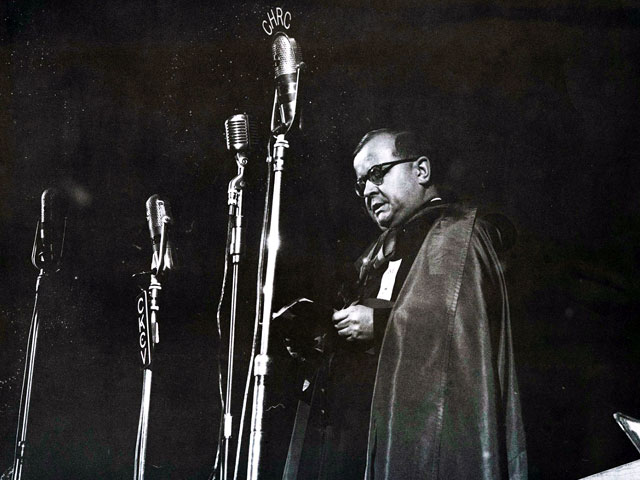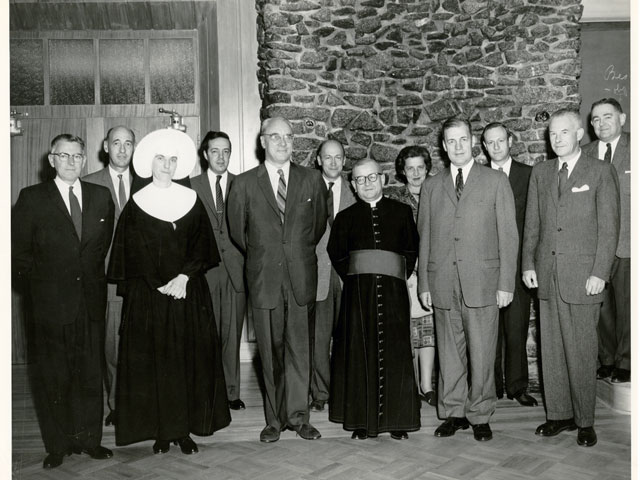Secondary Navigation Menu
Home > Events > Education > A Cat among the Pigeons: the Parent Report
A Cat among the Pigeons: the Parent Report
"The Parent Report questions the entire concept of education in Quebec" (translation).
Le Devoir, November 21, 1964
Finding Solutions to Problems within the Education System
One of the new Liberal government's primary initiatives in education was the establishment in 1961 of a Royal Commission of Inquiry on Education, better known as the Parent Commission. Its mandate was ambitious, to say the least: scrutinize the education system from every angle and recommend solutions to the many problems engendered by the system for too long. Presidency of the Commission was entrusted to a cleric with strong credibility, Monsignor Alphonse-Marie Parent, Vice-rector of Université Laval. Another commissioner was Sister Marie-Laurent de Rome, professor of philosophy and religion at Collège Basile-Moreau. The presence of two clerical representatives was interpreted by observers as a diplomatic coup by Paul Gérin-Lajoie, Minister of Youth. Five other individuals from the fields of education, information and industry completed the Commission roster.
The End of the Control of the Church over School
The Commission did a considerable amount of work. It received 349 memoirs, held audiences in eight cities in Quebec, met with 125 education specialists, toured some fifty educational establishments in Quebec and observed what was happening in education elsewhere in Canada, the United States and Europe. Its findings and recommendations filled five volumes. Recommendations included the need to center education on the child and implement new structures (six-year elementary course, five-year high school course, and two- to three-year pre-university and professional course, etc.). The recommendation that elicited the most reaction was the controversial replacement of the Département de l'Instruction publique by a Ministry of Education that would coordinate teaching at all levels and ensure smooth passage through the levels. Catholic authorities for whom education had been a private preserve for decades were indignant, but then somewhat mollified when ensured that schooling would remain denominational. Likewise, they were invited to sit on the Conseil supérieur de l'éducation, a consultative organization.
Related events
- The Creation of the Ministry of Education
- CEGEPs and the Université du Québec
- The Advent of the Welfare State
Related events
- The Creation of the Ministry of Education
- CEGEPs and the Université du Québec
- Greater Access of Women to Education




